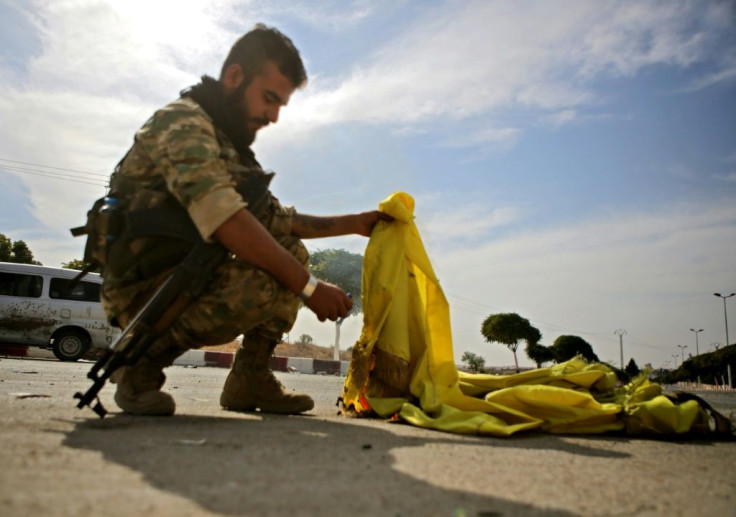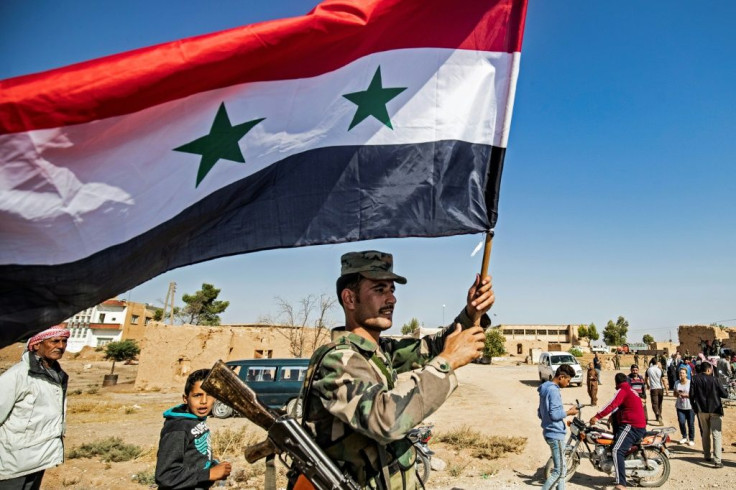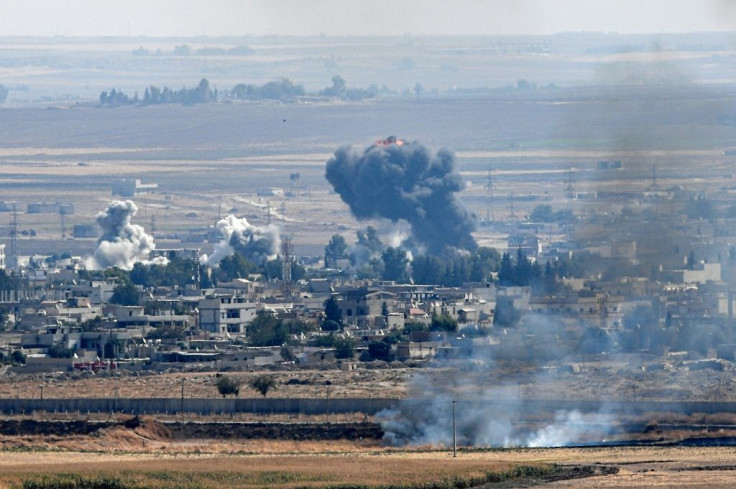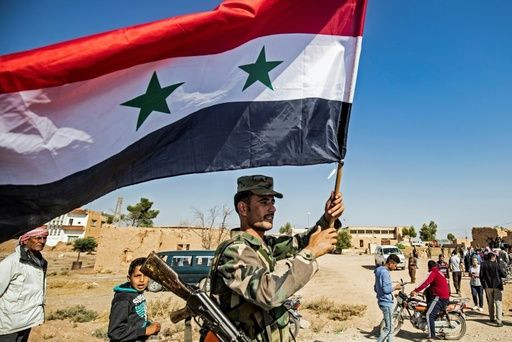For Syria Kurds, The End Of Autonomy?

After years of working towards autonomy, Syria's Kurds have been dropped by their US ally and forced to call in the Damascus regime to stem a six-day Turkish offensive.
But as President Bashar al-Assad's forces deploy towards the northern border, is the Kurdish minority giving up on autonomy?
Why bring in the regime?
Syria's Kurds have largely stayed out of the country's eight-year civil war, instead building their own institutions in regions they control in northern and northeastern Syria.
After decades of marginalisation, they have their own authorities, security forces and even schools in areas along the country's northern border.
Across the frontier, Turkey has eyed this push for independence with suspicion and considers the Syrian Kurdish fighters of the People's Protection Units (YPG) as "terrorists".
Until earlier this month, the presence of American troops in YPG-held territory acted as a buffer against repeated Turkish threats of an imminent invasion.
But after US President Donald Trump announced US special forces would pull out, Turkish troops and their Syrian rebel proxies on Wednesday launched a cross-border attack.

Feeling deeply betrayed after years of helping to fight the Islamic State group, and with the Pentagon on Sunday saying all 1,000 US troops would withdraw, the Kurds said they had struck a deal with Damascus to intervene.
What's at stake?
The Turkish-led assault has seen the self-proclaimed Kurdish authorities lose a 120-kilometre (70-mile) long strip of the frontier.
It has killed almost 130 Kurdish-led fighters and nearly 70 civilians, the Syrian Observatory for Human Rights war monitor says.

But they could lose even more in the roughly one third of the country they hold.
The Kurdish-led Syrian Democratic Forces control the country's main wheat-producing region, as well as major oil fields in eastern Syria.
The YPG has spearheaded the US-backed fight against IS in Syria, expelling the extremists from their last patch of territory in March.
After years of battle, they hold thousands of alleged IS jihadists in their jails, as well as related women and children in overcrowded camps, including foreigners.

They have warned any Turkish invasion would divert their security forces to the border and risk mass break-outs, and possibly a return in force of the extremists.
Despite the territorial defeat of IS, the jihadists have continued to claim deadly attacks in SDF-held areas.
On Sunday, the Kurds said around 800 IS-linked foreign women and children had escaped their custody after Turkish bombardment nearby, though Ankara has accused its foes of forcing them to leave.
Kurdish autonomy up in smoke?
Assad's regime has since 2015 gained back large swathes of the country from rebels and jihadists with key military backing from Russia.
It is now in control of around 60 percent of the country and has vowed to eventually retake every inch of Syrian soil.
The Kurdish authorities on Monday said all its institutions should continue to work normally after what it described as a purely "military agreement to defend the Syrian border".
A senior Syrian Kurdish official, Aldar Xelil, has described the deal as "an emergency measure" that does not affect the status of the autonomous region.
In talks until now, Damascus has demanded a full return of government institutions to Kurdish-majority areas, but the Kurds have sought to hang on to some degree of new-found autonomy.
With the expected US withdrawal, those dreams may have come to a screeching halt.
SDF chief Mazloum Abdi has acknowledged that help from Assad's government would mean making some concessions.
"We know that we would have to make painful compromises with Moscow and Bashar al-Assad if we go down the road of working with them," he wrote in a Sunday editorial in the Foreign Policy magazine.
But that, he said, was better than "genocide".
"The Kurds have their back up against the wall so the Damascus regime is making the most of it," international relations analyst Karim Bitar said.
Assad's government "feels it is in a position of strength, and will certainly make no concessions," he said.
© Copyright AFP 2024. All rights reserved.





















